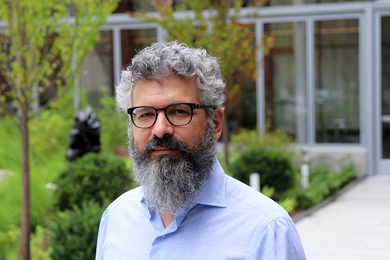Food supply chains are the core of our food system, yet they are vulnerable to major safety issues. Of particular concern are meat, dairy, seafood, produce, and other primary food products, where parts of the food supply chain are often known to be highly distributed and opaque. To help address these challenges, an interdisciplinary team of faculty and researchers from the MIT Sloan School of Management and the MIT Center for Biomedical Innovation is working together to develop predictive risk models to proactively manage risks related to food contamination in global food supply chains.
The group, which is partially funded by the MIT Abdul Latif Jameel World Water and Food Security Lab, will begin a large-scale collaboration with the Walmart Foundation in China. Together with Tsinghua University and other academic and industry collaborators, the MIT team plans to work on the development of new models and robust testing capabilities that will help strengthen the food system in China and support industry food supply chain design, best practices, and government oversight.
“China is a major global producer and consumer of food in the world, but it is affected by serious food adulteration incidents that have had major adverse outcomes in China and in the world. Our work could have a longstanding positive impact on food products that are critical to China and to the worldwide global food system,” says MIT Sloan’s Retsef Levi, the J. Spencer Standish (1945) Professor of Management and a principal investigator in the food safety project.
Yasheng Huang, the International Program Professor in Chinese Economy and Business at MIT Sloan and a principal investigator and founder of the MIT China Lab, says, “We are pleased to work with the Walmart Foundation on this important issue that will benefit the world. We appreciate its collaboration, as we continue to build a coalition both at MIT and on the ground throughout China. We seek to leverage the MIT team’s prior work and connections to create new systemic solutions to predict, monitor, and mitigate risks.”
MIT Professor Anthony Sinskey, faculty director of MIT’s Center for Biomedical Innovation (MIT CBI) and a principal investigator in the project, notes, “We are bringing an interdisciplinary approach to this important issue with a convergence of business, science, and engineering expertise from across campus. The ultimate goal is to revolutionize how risk is managed in food supply chains throughout the world."
Stacy Springs, a co-principal investigator on the team and program director/research scientist at MIT CBI, adds, “Our team uses an iterative process of applying technical and manufacturing expertise to inform the supply chain analysis, developing testing capabilities that both help secure the food system and inform where there are vulnerabilities that can be addressed with predictive analytical tools."
The project’s main focus is on safety risks in core primary food supply chains in China, particularly economically motivated adulteration. The upstream parts of these supply chains are known to be highly distributed with little visibility. Levi explains, “Food supply chains are often under economic pressure because of a range of factors, including weather effects, epidemics like the avian flu, competitive pressure, and pricing dynamics. These pressures could create situations in which firms and individuals could benefit financially from adulterating food ingredients and products, risking the health of consumers.”
The MIT team seeks to create new systemic solutions to predict, monitor, and mitigate risks. The solutions will include supply chain predictive risk analytics tools that leverage real-time monitoring of socioeconomic and environmental risk drivers, as well as new robust and rapid testing capabilities deployed in the field.
“The overall message is that food supply chain structures and dynamics matter and can be used to predict adulteration problems. We hope that this collaboration both at MIT and with collaborators in China makes a difference by leveraging our knowledge of food safety risks and creating risk management systems that benefit China and other countries,” says Levi.
Additional members of the MIT team include KDD Career Development Professor in Communications and Technology Tauhid Zaman and Sloan School Career Development Professor Yanchong (Karen) Zheng and Carbon P. Dubbs Professor of Chemical Engineering Michael Strano from CBI and the MIT Department of Chemical Engineering.
The MIT Center for Biomedical Innovation is improving global health by overcoming obstacles to the development and implementation of biomedical innovation.






